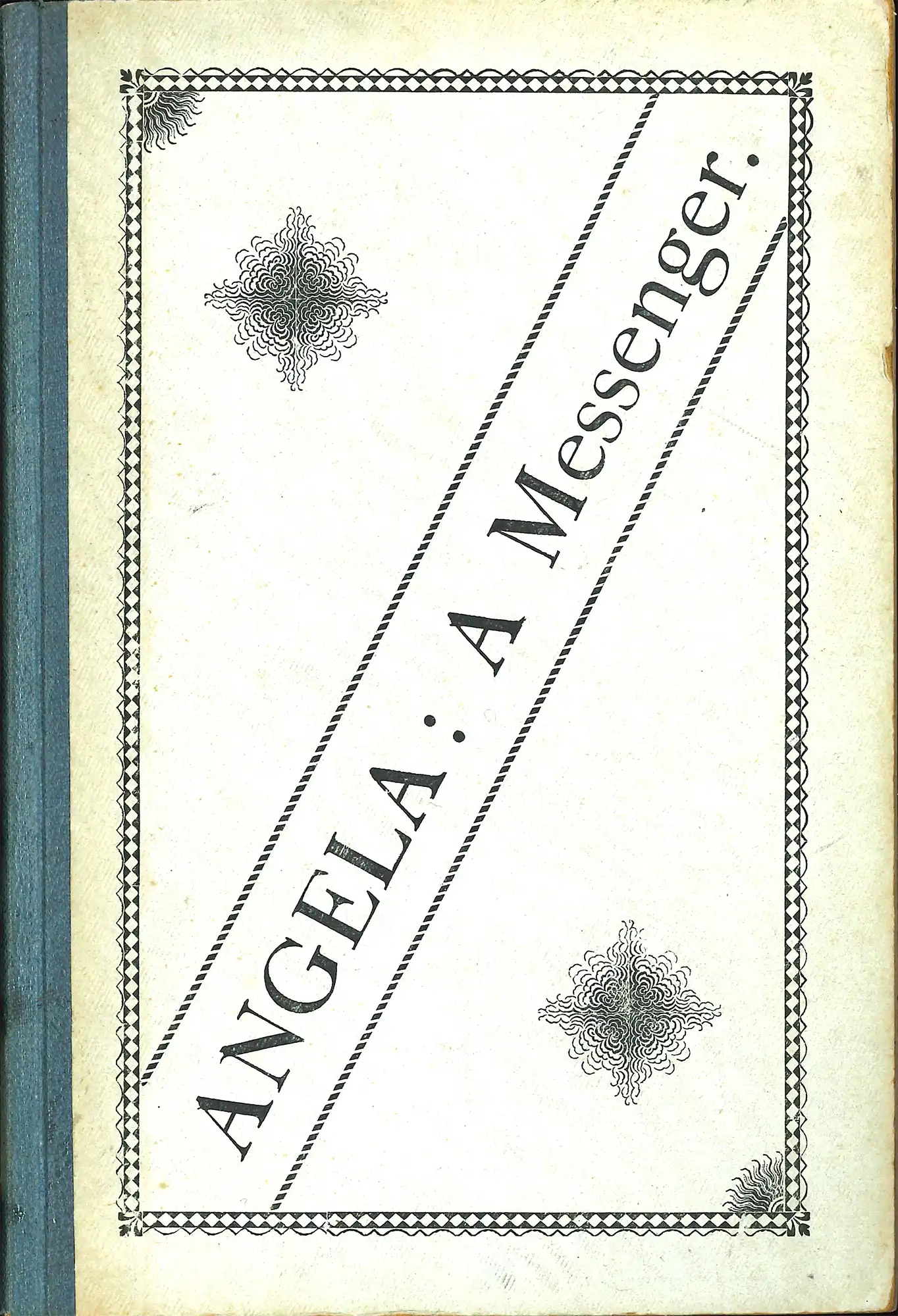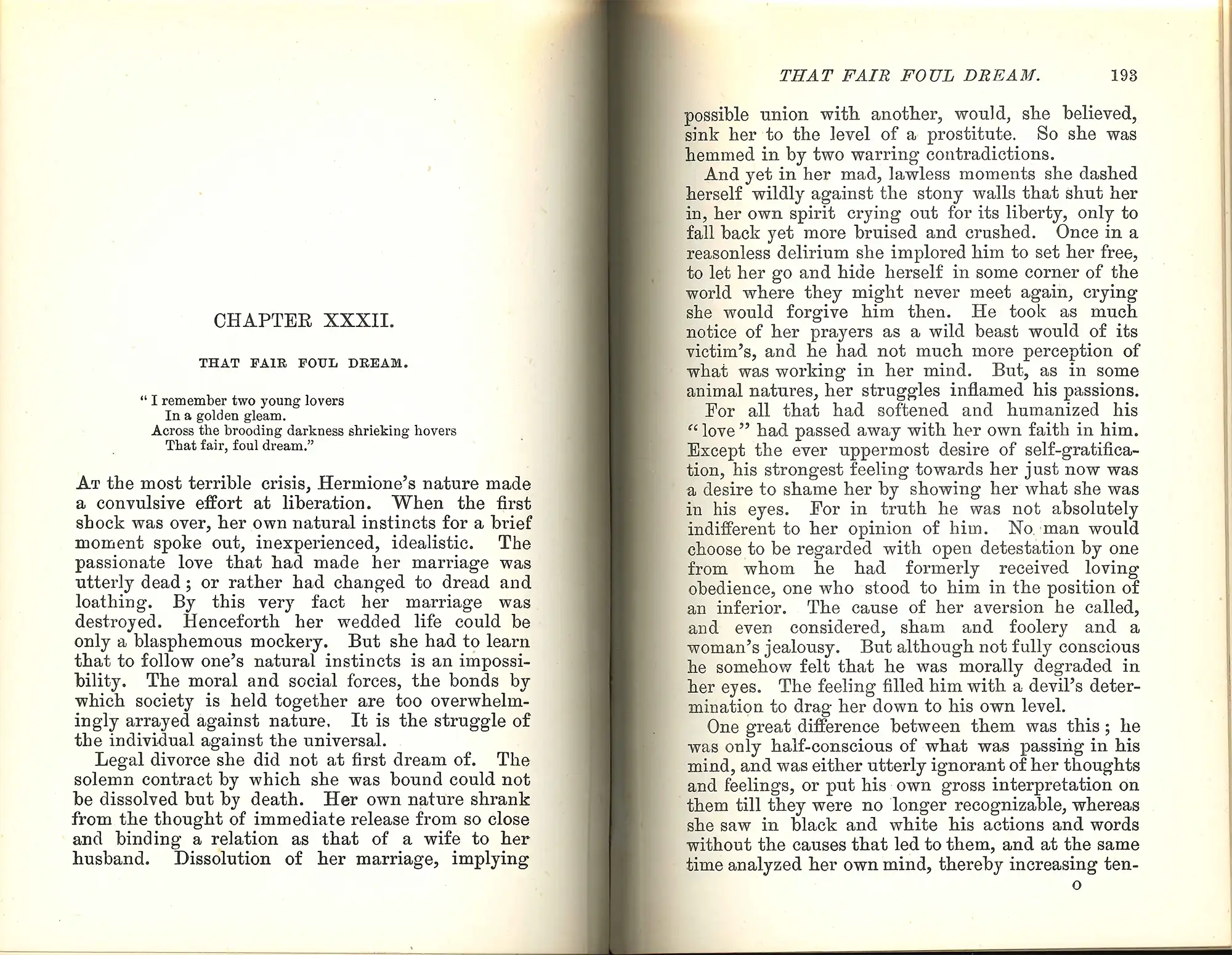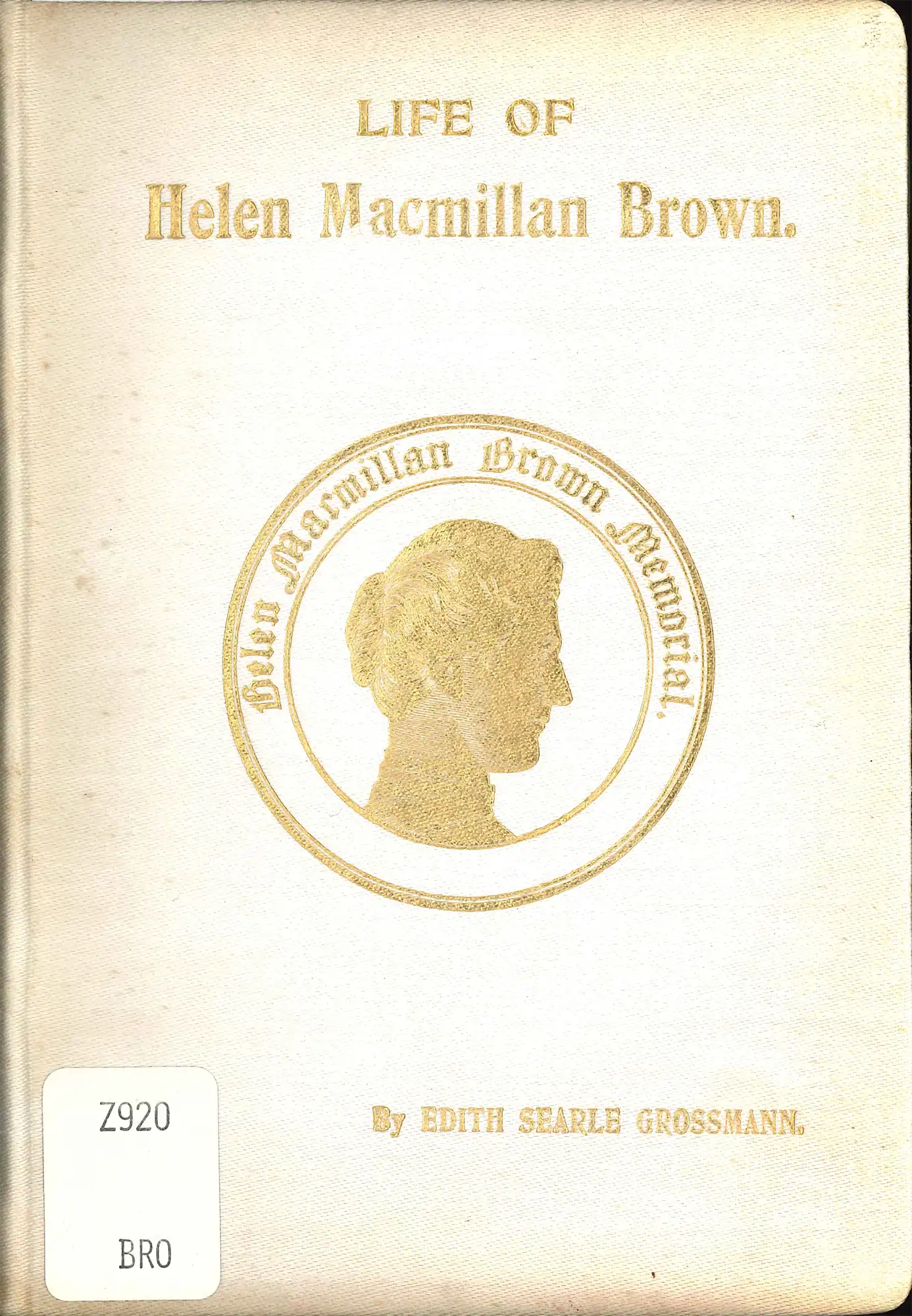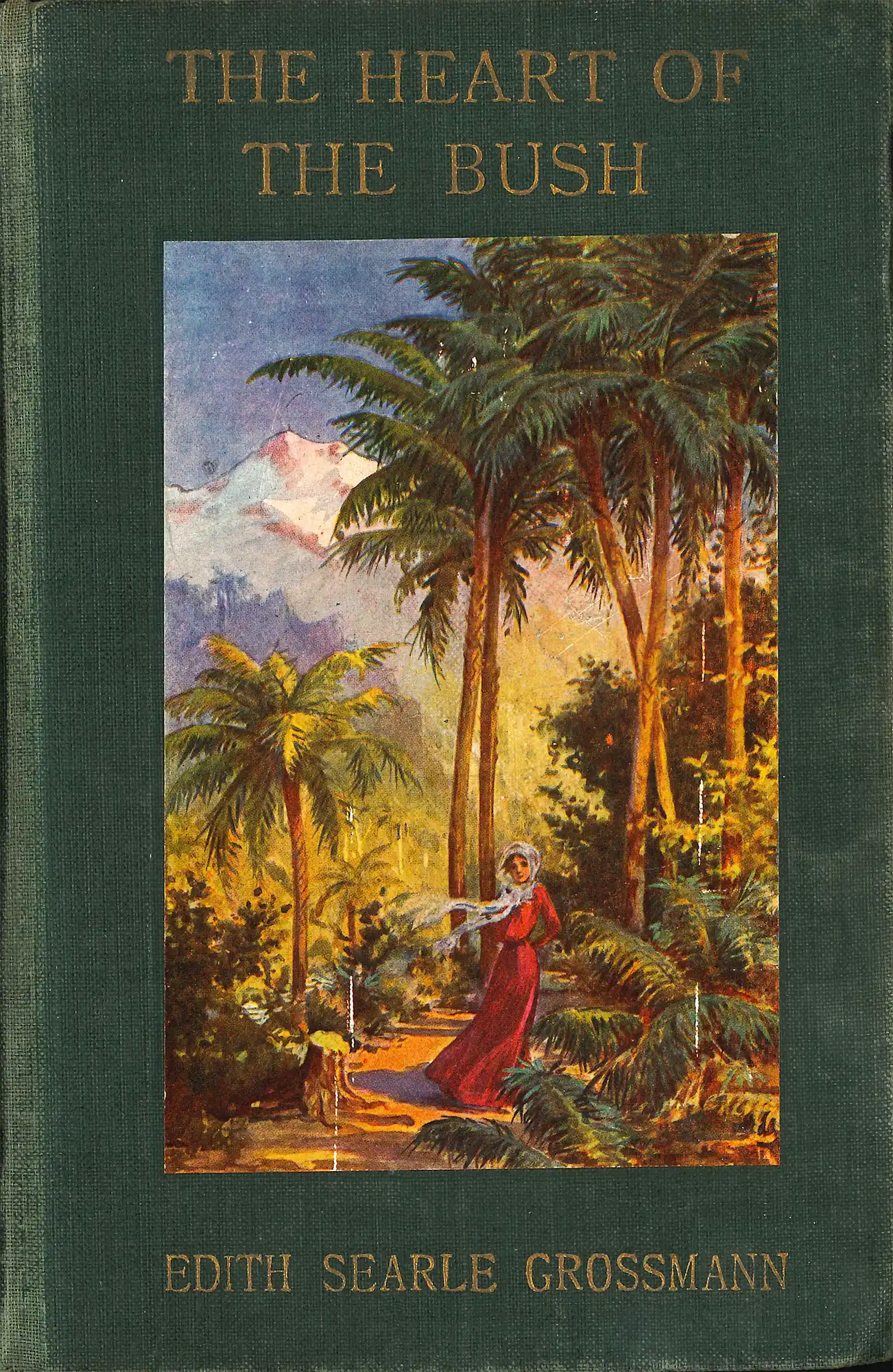Case 14
- Edith Searle Grossmann

Edith Searle Grossmann. Angela: a messenger. Christchurch: Simpson & Williams, 1890.
Edith Howitt Searle (1863-1931) was born in Australia and emigrated with her parents to New Zealand in 1878. A prodigious student, she was educated at Invercargill and Christchurch, where she graduated from Canterbury College in 1885.She became a teacher, and endured an unhappy marriage to Joseph Grossmann, whom she met at University.
She wrote four novels between 1890 and 1910 and is best known as a writer by her married name Edith Searle Grossman. She was involved in the women’s suffrage movement in the 1890s, and her fiction reflects her views about the struggle for the vote and for economic equality within marriage.
Her first novel Angela explores the idea that women had access to a higher morality than men, and features a protagonist ostracised for sins she had never committed. In revolt explores the problems of a feminist idealist shackled to a heartless husband. In her fourth novel The heart of the bush she seeks solutions to the issues raised in the previous three, and explores the role of women in marriage in a colonial society.

Edith Searle Grossmann. In revolt. London: Eden, Remington, 1893.
Edith Howitt Searle (1863-1931) was born in Australia and emigrated with her parents to New Zealand in 1878. A prodigious student, she was educated at Invercargill and Christchurch, where she graduated from Canterbury College in 1885.She became a teacher, and endured an unhappy marriage to Joseph Grossmann, whom she met at University.
She wrote four novels between 1890 and 1910 and is best known as a writer by her married name Edith Searle Grossman. She was involved in the women’s suffrage movement in the 1890s, and her fiction reflects her views about the struggle for the vote and for economic equality within marriage.
Her first novel Angela explores the idea that women had access to a higher morality than men, and features a protagonist ostracised for sins she had never committed. In revolt explores the problems of a feminist idealist shackled to a heartless husband. In her fourth novel The heart of the bush she seeks solutions to the issues raised in the previous three, and explores the role of women in marriage in a colonial society.

Edith Searle Grossmann. Life of Helen Macmillan Brown: the first woman to graduate with honour in a British university. Christchurch: Whitcombe and Tombs, 1905.
As a journalist, Grossmann wrote on a range of topics including Maori education, preserving old buildings and the needs for parks in cities. She published a short biography of Helen Macmillan Brown in 1905.

Edith Searle Grossmann. Life of Helen Macmillan Brown: the first woman to graduate with honour in a British university. Christchurch: Whitcombe and Tombs, 1905.
Open image in new window

Edith Searle Grossmann. The heart of the bush. London: Sands, 1910.
Edith Howitt Searle (1863-1931) was born in Australia and emigrated with her parents to New Zealand in 1878. A prodigious student, she was educated at Invercargill and Christchurch, where she graduated from Canterbury College in 1885.She became a teacher, and endured an unhappy marriage to Joseph Grossmann, whom she met at University.
She wrote four novels between 1890 and 1910 and is best known as a writer by her married name Edith Searle Grossman. She was involved in the women’s suffrage movement in the 1890s, and her fiction reflects her views about the struggle for the vote and for economic equality within marriage.
Her first novel Angela explores the idea that women had access to a higher morality than men, and features a protagonist ostracised for sins she had never committed. In revolt explores the problems of a feminist idealist shackled to a heartless husband. In her fourth novel The heart of the bush she seeks solutions to the issues raised in the previous three, and explores the role of women in marriage in a colonial society.



